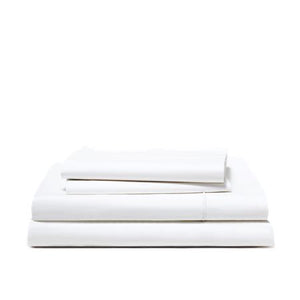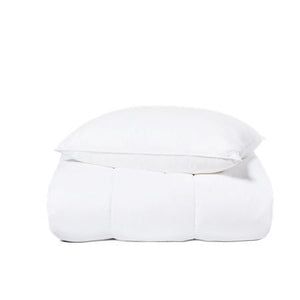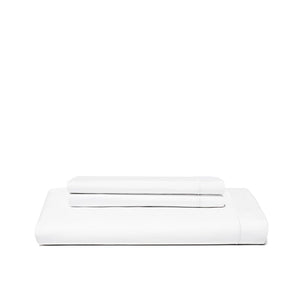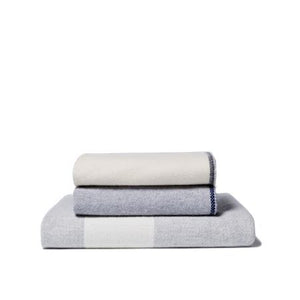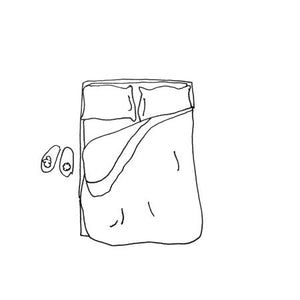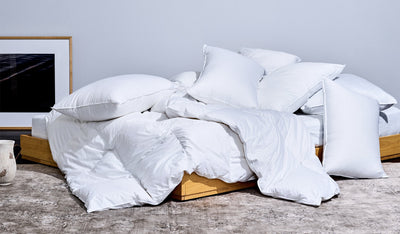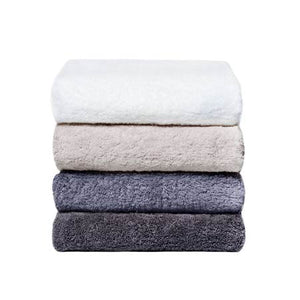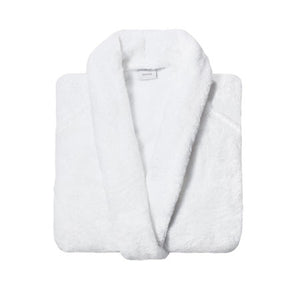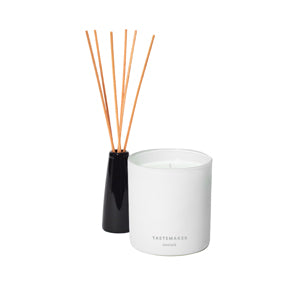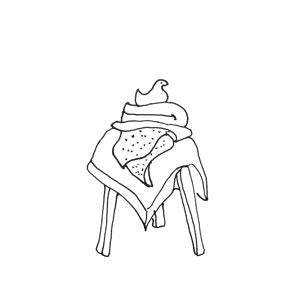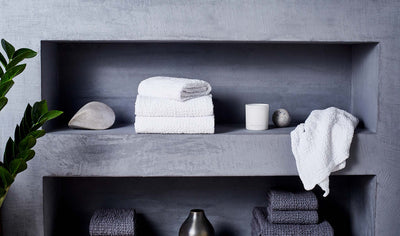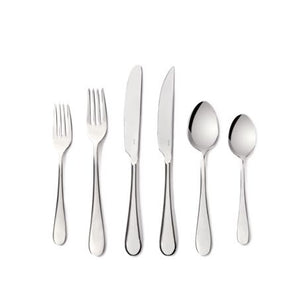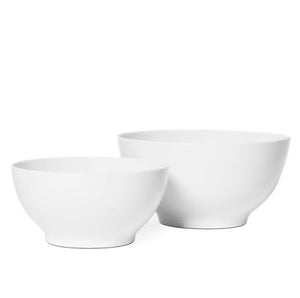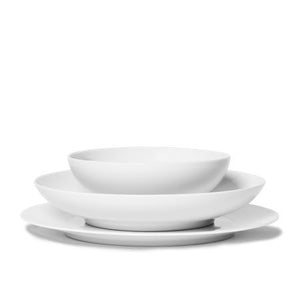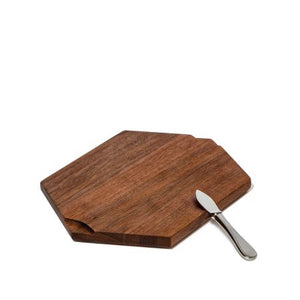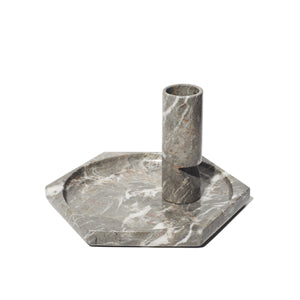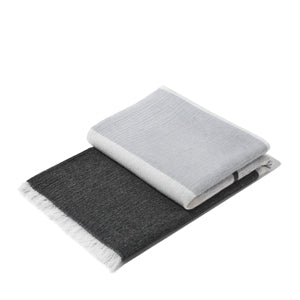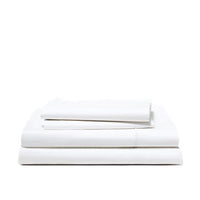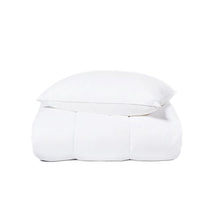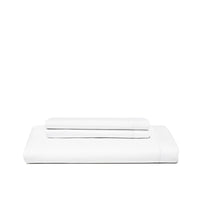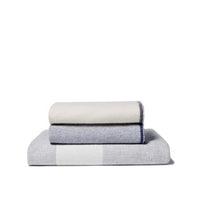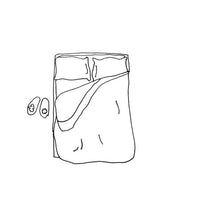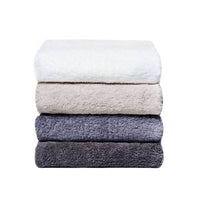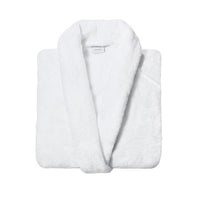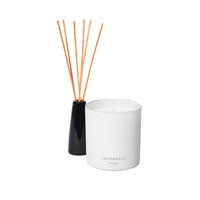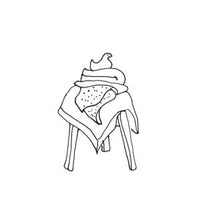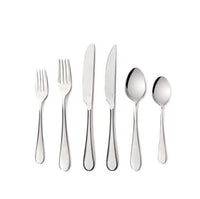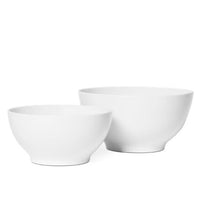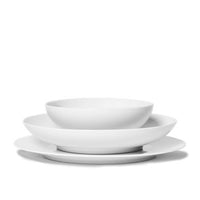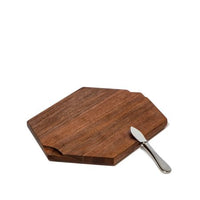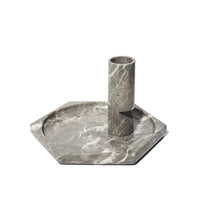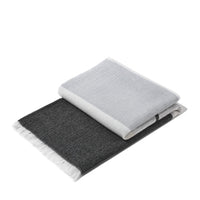Are you in the market for new sheets but unsure of which fabric to choose? Linen and cotton are two of the most popular choices for bedding, but they each have their own unique characteristics.
Understanding the differences between linen and cotton sheets can help you make an informed decision and ensure a good night's sleep.

Linen sheets are known for their breathability and durability. Made from the fibers of the flax plant, linen has a natural ability to wick away moisture, making it ideal for hot sleepers.
The best linen sheets are also highly durable and can last for years with proper care. However, linen sheets can be more expensive than cotton sheets and may wrinkle easily.
Cotton sheets, on the other hand, are soft and comfortable. Cotton is a versatile fabric that can be woven into a variety of textures, from crisp percale to silky sateen.
In this quick read, let's help you get to know them better and decide which one is the best for you in no time!
Understanding the Basics of Linen Sheets and Cotton Sheets

When choosing the perfect sheets for a good night's sleep, there are a lot of factors to consider. Two of the most popular options are linen sheets and cotton sheets. Here are the basic areas that you need to check:
Origin and Material
Linen sheets are made from the fibers of the flax plant, while cotton sheets are made from the fibers of the cotton plant. Both are natural fibers, which means they're breathable and comfortable to sleep in.
Linen has been used for thousands of years, making it one of the oldest fabrics in the world. It's known for its durability and strength, and it tends to get softer with each wash. Cotton, on the other hand, is a more versatile fabric that can be used for a variety of purposes, from clothing to bedding.
Weave and Thread Count
Another important factor to consider when choosing between linen and cotton sheets is the weave and thread count. The weave refers to the way the fabric is woven together, while the thread count refers to the number of threads per square inch of fabric.
Linen sheets are typically woven in a percale weave, which is a simple, tight weave that creates a crisp, cool feel. Cotton sheets, on the other hand, can be woven in a percale or sateen weave.
Percale is similar to the percale weave used for linen, while sateen is a more luxurious weave that creates a silky, smooth feel.
When it comes to thread count, higher isn't always better. In fact, a thread count that's too high can actually make the sheets feel heavy and stiff.
For linen sheets, a thread count of 80-150 is considered ideal, while for cotton sheets, a thread count of 200-400 is generally recommended.
Comfort and Care Comparison of Your Best Bedding Sets

When comparing the comfort and care of your linen and cotton bedding sets, both offer unique advantages. Linen provides exceptional breathability and durability, making it ideal for warmer climates and requiring minimal maintenance with a naturally relaxed look.
Cotton bedding sets, known for their softness and smooth texture, are easy to care for with machine washability, ensuring a cozy and hassle-free sleep experience. Here are a few items that should be on your checklist:
Feel and Comfort
When choosing between linen and cotton sheets, the first thing you want to consider is how they feel against your skin. Both linen and cotton sheets are soft and comfortable, but they have different textures.
Linen sheets are known for their luxurious, smooth, and soft feel. They are also highly breathable, which means they keep you cool in warm weather.
On the other hand, cotton sheets are also soft and comfortable, but they have a slightly more crisp feel than linen. Cotton sheets are also breathable, but they may not be as effective at regulating temperature as linen sheets.
Maintenance and Longevity
When it comes to maintenance and longevity, both linen and cotton sheets have their pros and cons.
Linen sheets are highly durable and can last for decades if cared for properly. They are also easy to care for and can be machine washed with mild detergent. However, they do tend to wrinkle easily and may require ironing.
Cotton sheets are also durable and can last for several years with proper care. They are easy to care for and can be machine washed with mild detergent. However, they may shrink in the wash and may require ironing to remove wrinkles.
In terms of maintenance, both linen and cotton sheets require some level of care to ensure they last as long as possible. Avoid using fabric softener or chlorine bleach, as these can damage the fibers of both linen and cotton sheets. Instead, opt for a mild detergent and avoid washing your sheets in hot water, which can cause shrinkage.
Style and Sustainability of Linen Bedding Sets and 100 Cotton Bedding Sets

Design and Aesthetics
When it comes to design and aesthetics, linen bedding sets and 100% cotton bedding sets both have their unique look and feel.
Linen bedding sets have a natural, relaxed look that gives off a luxurious yet effortless vibe. They often come in muted, earthy tones or soft pastels, and can be styled with different textures and patterns to create a cozy, inviting look.
On the other hand, 100% cotton bedding sets come in a wide range of patterns and designs, from classic stripes and plaids to bold, colorful prints. They offer a more polished, put-together look that can be dressed up or down depending on your personal style.
Eco-Friendly Choices
If sustainability is a top priority for you, both linen and cotton bedding can be eco-friendly choices.
Linen bedding sets are made from flax, a plant that requires little water and can be grown without the use of pesticides or fertilizers. Linen is also biodegradable, making it a great choice for those looking to reduce their environmental impact.
Cotton can be more sustainable depending on the type of cotton used. Organic cotton is grown without the use of harmful chemicals, while upland cotton is a more sustainable option than other types of cotton like Egyptian or Pima cotton, which require more water and resources to grow.
Conclusion
In the debate between linen and cotton sheets, both fabrics offer unique benefits that cater to different preferences and needs. Linen provides superior breathability and durability, making it ideal for warm climates and a relaxed, rustic look, while cotton offers unmatched softness and a smoother texture, perfect for year-round comfort.
To experience the best of both worlds, check out our best linen and cotton sheet collections today and find the perfect fit for your bedroom!
Related Articles:
Frequently Asked Questions
Which is better cotton or linen?
Both cotton and linen have their own unique qualities and benefits. Cotton is known for its softness and durability, while linen is highly breathable and has a natural, textured look.
Ultimately, the choice between cotton and linen comes down to personal preference and what you value most in your bedding.
Is linen or cotton better for hot weather?
Linen is often considered the better option for hot weather due to its breathability and moisture-wicking properties. Its loose weave allows for air to circulate freely, keeping you cool and comfortable throughout the night. Cotton can also be a good choice for hot weather, but it depends on the weave and quality of the cotton.
Is it better to sleep in linen or cotton?
Again, this comes down to personal preference. Linen has a unique feel and texture that some people love, while others prefer the softness of cotton.
Both materials can be comfortable to sleep in, but it's important to choose a quality product that meets your specific needs and preferences.
What are the pros and cons of linen?
Pros of linen include its breathability, durability, and natural texture.
Linen also has a unique look that can add a touch of elegance to your bedding.
Cons of linen include its tendency to wrinkle easily and its higher price point compared to other materials.
However, many people find the benefits of linen outweigh the cons.
